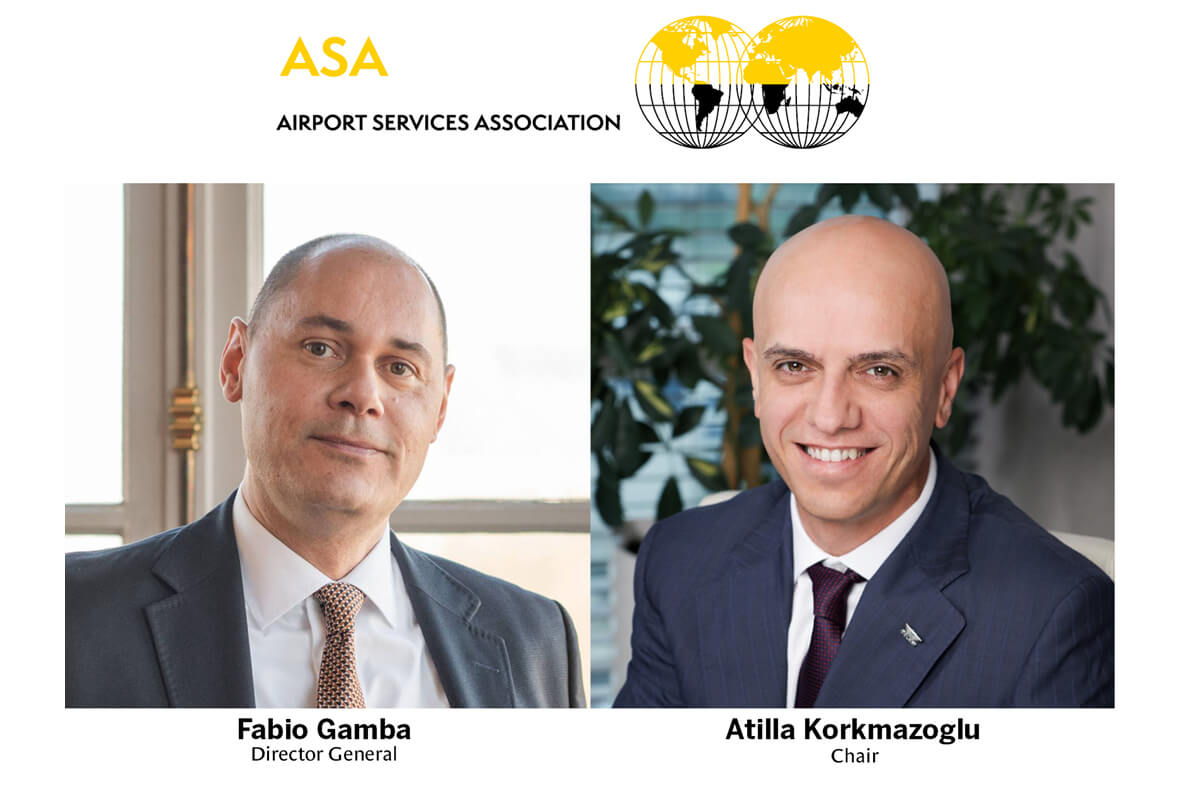The Airport Services Association is expanding its membership and strengthening its governance as it seeks a greater voice on the
world aviation stage. Mark Pilling reports
ASA took a huge leap forward in its bid to rival other aviation industry associations in their influence and global reach at the end of 2022.
On 18 December, the ASA General Assembly approved a range of sweeping changes, which came into effect from January. A critical difference is that membership will now be open to all. “The membership will be accessible to ground handling, cargo, fuelling services, ancillary services, and other outsourced services to airlines and airports who identify themselves with the ASA’s purpose and objectives,” said ASA.
The association’s Chairman, Atilla Korkmazoğlu, commented: “The Covid-19 pandemic and the sharp recovery in 2022 have been a wake-up call. In a complex aviation ecosystem where airlines are at the top of the value chain, the world has finally realised how central our services are to a safe and efficient air transport industry.
“We found it very difficult, if not outright impossible, to get access to the emergency funds provided to the aviation sector during the pandemic and bore the brunt of the lockdown, losing up to 40% of our workforce in a matter of months,” he explained. “This situation cannot happen anymore for the sake of this industry, and we are shaping a new and stronger ASA to make sure our recommendations are heard at national and international level, as well as amongst industry partners such as IATA, ACI, TIACA, and others.”
The move was flagged at the inaugural ASA Leadership Forum held in September 2022 in Athens, which was a strong statement of intent from leading figures in the ground services industry, with many represented on panels and the CEO Leadership debate at the event, organised by ASA in partnership with EVA Media International.
In Athens, ASA announced that membership would be open not just to independent handlers but to all forms of service companies. The first to take advantage of this change was Qatar Aviation Services, the services arm of Qatar Airways.
Another new member is French services operator Onet Airport Services, which provides baggage management, runway, and cleaning services for all types of aircraft.
The full opening will offer many advantages that will transform the 12-year-old trade body into one that is “better adapted to the fast-changing air transport environment by giving it more means, more expertise, and a wider basis of membership”, said ASA’s Director General Fabio Gamba.
“The new ASA aims to unite all aviation service providers under one strong association,” he said. “We see our role as protecting the interests of all, enabling ASA to constitute a homogeneous entity out of an otherwise fragmented sector.
“There is no question the aviation services sector must shape up to form an effective third angle of a triangle whose other two representatives are the airlines and the airports,” added Gamba. “We all face the same challenges eventually: rampant consolidation, tough working conditions, both socially and economically, and, to be frank, a worrying and ultimately very damaging race to the bottom.
“The new platform and structure will allow a strong united trade body to have a powerful impact and its voice to be on par with other trade bodies,” said Gamba.
New governance
The changes at ASA will enable the association’s secretariat to grow in number and capacity to better respond to the needs of the sector.
Two of the main tasks ASA will spearhead are firstly, the ASA Leadership Forum, which will become a yearly event where “strategic questions affecting the sector are debated at the highest level and which will serve as a beacon for the association and the industry”.
Secondly, a range of committees will be established, dedicated to identifying and solving the most important common hurdles that the members of the community face in their daily operations, said Gamba. This is common practice at the industry’s most established associations, which have multiple, longstanding committees that address a host of issues.
Another major shift in governance for ASA sees the creation of two boards to manage the association. This will enable more senior players from ground services companies to be involved in ASA’s activities, take some of the work burden from the secretariat and enable the association to become more involved in tactical work such as committees and other events, said Gamba.
Some of the main topics for 2023, in addition to the basic requirement of ensuring business recovery continues this year, will be working with the European Union Aviation Safety Agency on new regulations for the ground services industry; collaborating with many bodies on sustainability initiatives; and ensuring a sustainable and competitive services environment is maintained at airports, explained Gamba.
At the time of writing, ASA’s membership stood at 56 companies, having risen from 45 over the pandemic period – a testament to the need for a collective industry voice.
Gamba is in discussions with more potential members. A lot of interest was spurred by the Athens event and further announcements are hoped for in the first half of the year.
One of ASA’s priorities is to become more regionally active and to improve its representation in the Americas. “We want to have regional chapters,” he noted. Africa is another region where ASA wants to expand. “There are 80-plus ground handling bodies in Africa and we want to be able to offer them a dedicated service,” said Gamba.
“Authorities and international organisations rely on a partner with the right credentials, expertise and knowledge to help them achieve this essential task for air transport,” said the association’s press release. “ASA is fully committed to the mission with a membership of more than 50 companies around the globe, representing hundreds of thousands of qualified workers.”
As the association’s website states: “No plane takes off without us.”



